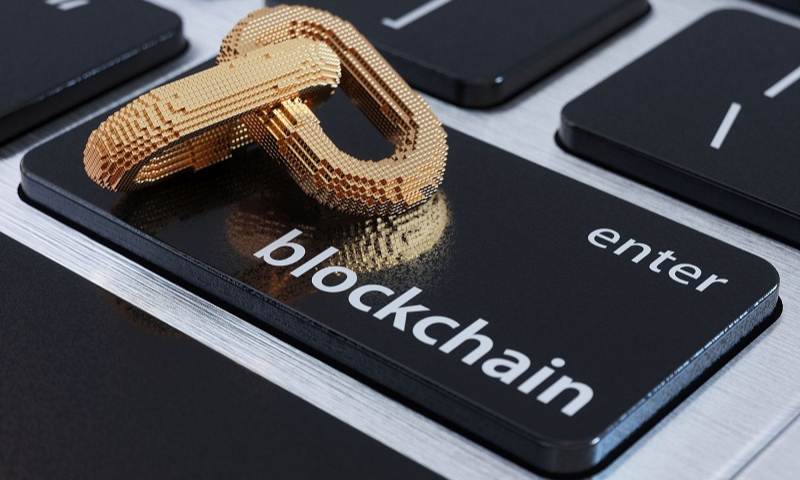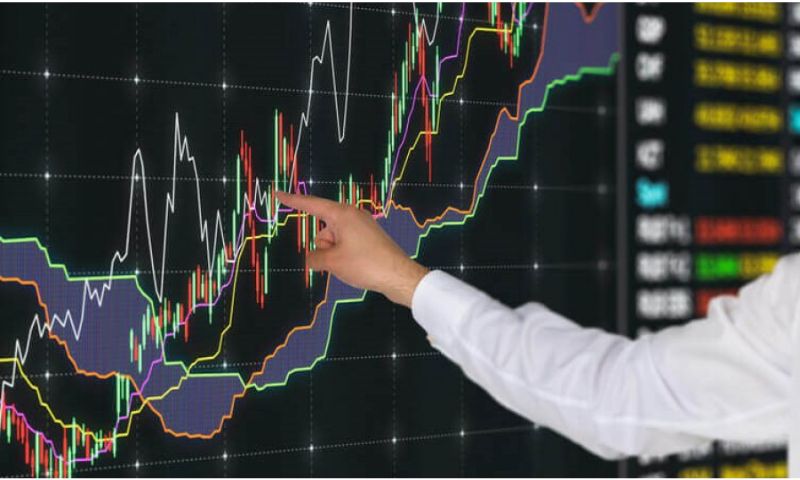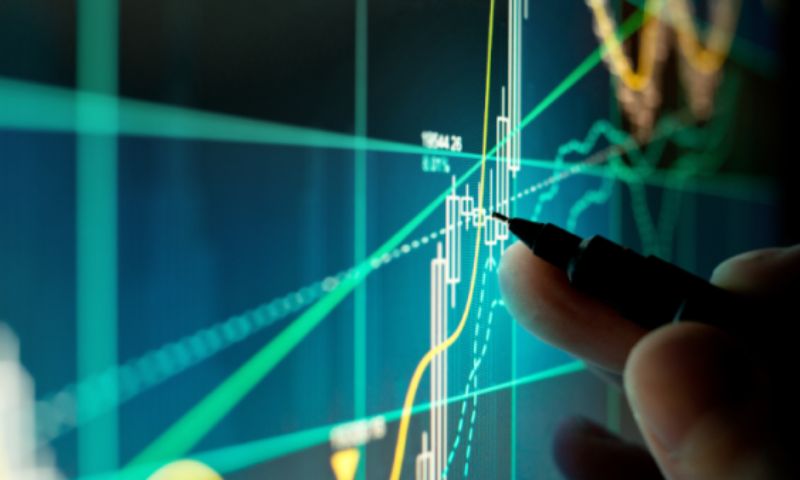Blockchain Revolution: Transforming Securities Trading Today
Picture the stock market, but on steroids. That’s what Blockchain for securities trading is like—powerful, fast, and a game changer. It’s not just a buzzword; it’s the backbone of a new trading era. With it, we’re saying goodbye to the old ways of trading securities. Gone are cumbersome processes and hello to sharp efficiency. Let’s hit the ground running with this revolution, diving into the robust foundations of blockchain that are turning the trading world on its head. Ready to see how this tech is shaking things up from tokenized assets to smart contracts? Buckle up—your trading is about to get a serious upgrade.
Foundations of Blockchain in Securities Trading
Understanding Distributed Ledger Technology
Imagine a book where everyone writes their trades. It’s safe, quick, and open. That’s distributed ledger technology (DLT). It’s at the heart of blockchain technology in trading. It lets us trade stocks and other assets on digital securities platforms without waiting or worry.
DLT is a shared record of data. It’s like a big, secure, group journal. This ledger is on many computers. They all match. So, no single person or group can control or change it. This ledger technology in financial markets means everyone can trust the trade process.
Ledger-based trading helps in many ways. It cuts out middlemen, making trading faster and cheaper. Crypto trading on stock markets uses this tech. It makes every step clear and fast. This is key for blockchain real-time settlements. You trade, and it’s done in seconds.
The Growth of Tokenization of Assets
Now, let’s dive into tokenization of assets. It’s like turning real things, like houses or art, into digital tokens. Each token stands for a piece of that real thing. It’s a part of blockchain stock exchanges. And it’s growing fast.
Security tokens offerings have boomed. This is because they open investment doors to more people. Before, big-time investing was for the few. Now, with blockchain, it’s for everyone. The tokens are on a ledger, so buying and selling them is easy and honest.
Tokenization is about more than trade. It gives you a share in something you care about. You can own part of a green energy project, or a piece of history. With digital wallets for these tokens, your assets are always with you, in your pocket.
DLT not only allows for effective peer-to-peer trading mechanism but also for the regulation and oversight necessary to maintain order and confidence in the markets. The decentralized securities exchanges built on DLT empower traders to deal directly and securely with each other, ushering in a new era of efficiency and access.
The blockchain’s introduction has started a major shift in how trading is done. It takes power from the few and gives it to every one of us who trades. That’s why it’s so exciting. It’s more than tech. It’s a chance for all to get involved in markets in ways that were impossible before. And it’s only getting started.
The bond between DLT and financial markets is growing stronger. Our trading future is set to be faster, more inclusive, and incredibly open. Through the wonders of DLT and tokenization, we are paving the way for a fairer trading world. A world where everyone can see their trades happen in real time and have a stake in assets they believe in. Welcome to the new age of securities trading, powered by blockchain.
The Role of Smart Contracts and Digital Securities Platforms
Advancing Trading Efficiency with Smart Contracts
Blockchains change how we trade. They do this through smart contracts. These are like digital promises. When agreed terms are met, the contract does something automatically. This could be sending money or sharing ownership of an asset. In trading, this means deals can close fast, safe, and without a middle-man.
Using smart contracts, trades happen in real-time. You don’t wait for days. Everything updates instantly. This is great because it speeds up trading, makes it cheaper, and reduces mistakes. Money and assets move faster with smart contracts. This helps everyone. Traders, businesses, and even regular folks who invest.
Smart contracts for trading are not just quick. They’re also smart and secure. They won’t work if the deal isn’t right. That means less fraud and safer trades. This building block of ledger technology is vital for financial markets. It makes sure folks can trust their investments.
Regulation and Compliance in Digital Securities
Digital securities platforms need to follow rules. Just like traditional markets. Regulations keep trading safe and fair. Blockchains can help with that. Blockchain KYC/AML ensures that we know who trades. This is important to stop money-laundering and other bad acts.
Regulatory compliance blockchain is key. It’s a big word, but it simply means that blockchains must follow laws and standards. This can get tricky, as laws vary a lot across the world. Experts work hard to make sure blockchains play by the rules.
So, when we think of regulations, blockchain technology comes as a friend, not a foe. It adds layers of checks and balances, making sure everything’s by the book.
In essence, blockchains give trading a fresh way forward. They ensure secure, efficient, and regulated security trades. This helps markets work better for all.
Streamlining the Trading Process via Blockchain
Peer-to-Peer Mechanisms and Decentralized Exchanges
Peer-to-peer trading cuts out middlemen. It connects buyers and sellers directly. Blockchain makes this safe and easy. Using blockchain, traders deal with each other using digital securities platforms. These platforms use distributed ledger technology. This means they share records across many places. When someone buys or sells, the record updates everywhere immediately.
Decentralized exchanges (DEXs) change how we trade. They let people swap assets without giving up control. You don’t need a middleman to hold your money or assets. Instead, smart contracts handle the trade. They are like self-run computer programs. They do what traders agree on, without delay.
DEXs and peer-to-peer trading help us trust each other. They use cryptographically secured transactions. This is high-tech code that protects our trades. So, we can trade directly and still feel our assets are safe.
Blockchain’s Impact on Clearing and Settlement
Blockchain transforms how we finish trades, known as clearing and settlement. Normally, this takes days. With blockchain, it can happen in seconds. Why? Because blockchain does the job of many processes all at once.
Here’s how it works. Blockchain uses smart contracts for trading. When a trade is done, the contract automatically updates the ledger. The ledger is just a big list of who owns what. It’s stored on many computers, so it’s very hard to mess up.
Because of this, blockchain reduces intermediaries in trading. Fewer middlemen means faster trades and fewer mistakes. Plus, it can happen any time, so we call it blockchain real-time settlements.
Clearing and settlement are key steps in trading. They ensure everyone gets what they agreed on. Blockchain not only speeds this up but also brings blockchain transparency to market trading. Everyone involved can see the trade happen. So, no one is left wondering if things went right.
In short, blockchain technology in trading is big news for how we trade stocks and other assets. It offers us a faster, more direct way to trade that’s still safe and follows the rules. Blockchain doesn’t just change how we trade. It reshapes our trust in the process. It’s like rebuilding the engine of a car while it’s still running. And, it’s making the car faster and more efficient as it goes.
Future of Blockchain in Equity Markets and Compliance
Integration of Distributed Databases in Stock Trading
When folks talk about stocks, they think big buildings, suits, and lots of paperwork. But imagine a place where all that stuff fits in your pocket. That’s what blockchain can do for stock trading. It’s like having a super-smart, super-safe journal that everyone can trust. This journal is a distributed ledger technology (DLT), which means lots of computers share it. It’s like a bunch of friends holding a piece of a secret – together, they make sure it stays safe.
So why does this matter? When you trade stocks, it can take days to finish a deal. With blockchain, it’s almost like magic – whoosh – done in no time! It skips steps we don’t need and everyone knows right away, ‘Hey, this deal’s good!’ That’s trading efficiency blockchain-style.
And there’s more good news! With blockchain, people can do business directly with each other, which is called peer-to-peer trading. It’s like kids trading cards in the playground. No need for someone in the middle to say, ‘This trade’s fair.’ That’s cutting out the middleman, or what we call reduction of intermediaries in trading.
Using blockchain also means safer trades. Each deal has a secret code, so only the people trading can touch it. We call these cryptographically secured transactions. Think of it as whispering a secret that only your best friend can hear.
The Rise of Security Token Offerings and Ledger-Based Share Issuance
Now let’s talk about something really cool: security token offerings (STOs). These are like golden tickets for owning parts of a company, but they’re on the blockchain. So instead of a paper certificate, you get a digital token – kind of like a special power-up in a video game. This is tokenization of assets, making it easy peasy to trade and keep track of.
Companies can also use blockchain to give out shares, which we call ledger-based share issuance. It’s super fast and super clear who owns what. It’s like handing out pieces of a pie – you can see exactly how big your slice is right away.
And no worries about playing by the rules. Blockchain makes it easy to follow the laws, known as regulatory compliance blockchain. It’s like a game where blockchain helps make sure everyone follows the rules.
So, why should we care about all this? Because it makes trading fair, fast, and friendly. You get your trades done quickly with blockchain real-time settlements. It also invites more people to the party, helping regular folks like you and me to join in. This means you can be part of the big stock game too, which we call blockchain democratization of securities.
In short, blockchain technology is changing the game in how we deal with money and stocks. It brings everyone to the table and makes trading quick, safe, and clear for all. The future is bright, and I’m not just talking about the screens on our phones. It’s a new world of trading at our fingertips, and I can’t wait to see where it goes next.
In this post, we’ve walked through how blockchain is changing the game in securities trading. We looked at the nuts and bolts of distributed ledger technology and how assets are now going digital with tokenization. We saw smart contracts and digital platforms reshape trading efficiency and tackle compliance issues. Peer-to-peer trades and faster clearing show blockchain’s power to streamline. Finally, we imagined a future where blockchain is a staple in stock markets, with security token offerings and new ways to issue shares.
As an expert, I believe blockchain’s impact is just starting. We’ll see more innovation, better security, and inclusive markets. There’s no doubt – blockchain in securities is not just a buzzword; it’s a revolution in the making. Keep an eye on it, and don’t get left behind.
Q&A :
How does blockchain technology enhance securities trading?
Blockchain technology has the potential to revolutionize securities trading by increasing transparency, reducing settlement times, and diminishing costs. By maintaining an immutable ledger of transactions, blockchain provides an environment where trade clearances can occur almost instantly and without the need for traditional intermediaries, like clearinghouses. This results in a more efficient and secure trading process, which is attractive to both investors and regulators.
What are the benefits of using blockchain for securities trading?
The use of blockchain for securities trading brings several benefits. Firstly, it improves the speed of transaction processing and settlement, often from days to near real-time. Secondly, it enhances security and auditability by using cryptographic techniques, which makes it difficult to alter records fraudulently. Thirdly, it reduces operational costs by removing the necessity for intermediaries and streamlining the process. Additionally, blockchain technology increases market transparency and can provide better compliance solutions through smart contracts.
Can blockchain be integrated with existing trading platforms?
Yes, blockchain technology can be integrated with existing trading platforms. Many financial institutions and fintech companies are exploring ways to leverage blockchain to improve their current systems. Through APIs and other interfacing technologies, blockchain components can work in tandem with legacy systems, potentially creating a hybrid model that preserves existing infrastructure while enhancing certain functions with blockchain’s advantages.
What challenges might arise when implementing blockchain in securities trading?
While blockchain offers significant benefits, several challenges exist in its implementation for securities trading. Regulatory uncertainties remain one of the main hurdles, as authorities around the world are still developing frameworks governing blockchain use in financial markets. Additionally, there is the issue of market readiness and the possible resistance to transition from established systems due to the cost and complexity of adopting new technologies. Scalability of blockchain systems and ensuring they can handle the high volumes of transactions typical in securities trading is also a notable challenge.
Are there any existing examples of blockchain being used in securities trading?
As of my knowledge cut-off in 2023, several initiatives and pilot projects have demonstrated the use of blockchain in securities trading. For instance, the Australian Securities Exchange (ASX) has been working on replacing its current clearing and settlement system with a blockchain-based platform. In various countries, corporations and start-ups have trialed the issuance and trading of tokenized securities on blockchain platforms, proving the viability of the technology in live market conditions. These cases provide insight into how the future of securities trading could look once blockchain technology is fully embraced.



